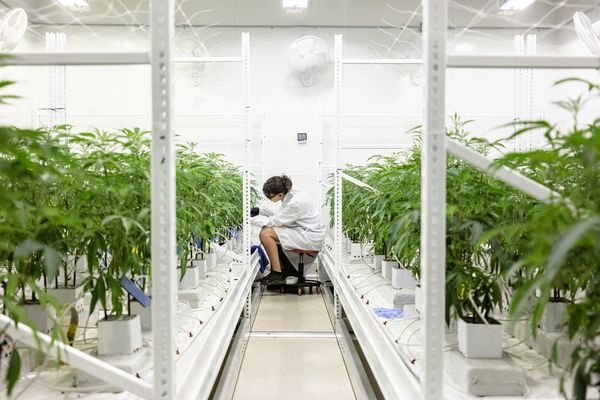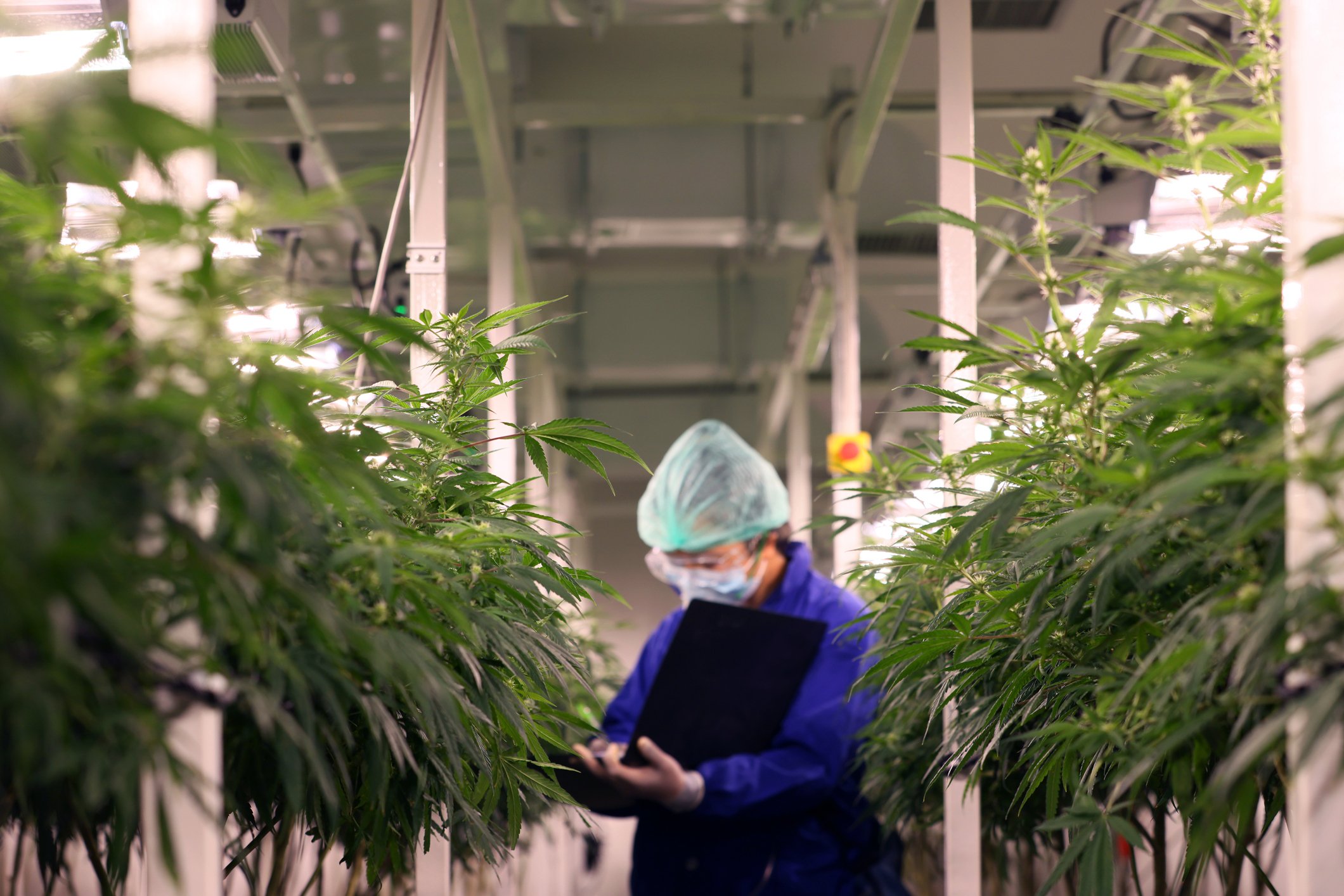There's little question of what the marijuana industry could one day become. After seeing tens of billions of dollars change hands in the black market annually, it's evident that global weed sales in the legal market could grow many times over from the $10.9 billion reported in 2018.
But things haven't gone as planned for cannabis stocks or the industry as a whole. Supply chain issues in Canada have kept legal product out of dispensaries, while in the U.S., high tax rates have been the culprit that's driven consumers back to black market producers. As a result, we've witnessed sales and profit forecasts for North American pot stocks fall off a cliff.
However, there have been a few exceptions to the rule.

Image source: Getty Images.
This pure-play cannabis stock has been rolling in the green
Arguably the most profitable pure-play marijuana stock on the planet is cannabis-focused real estate investment trust (REIT) Innovative Industrial Properties (IIPR 1.85%). This is a company that's seen its profit projections for the current and forward year soar throughout 2019, which is a function of Innovative Industrial Properties' practically quadrupling its asset portfolio to 42 properties in 13 states since the year began. Given its relatively low cost structure, IIP's cash flow tends to be relatively predictable. Not to mention, as a REIT it avoids normal corporate income taxes in exchange for paying out most of its net income to shareholders.
Innovative Industrial Properties has very clearly benefited from the lack of financing options that are open to vertically integrated dispensary operators in the United States. Recent sale-leaseback agreements with the likes of Trulieve Cannabis, Green Thumb Industries, and Cresco Labs, to name a few, have diversified IIP's portfolio across the country and given it a long-term presence in most core markets.
Innovative Industrial Properties' predictability is also due to the length of lease contracts signed with its tenants. Following the company's deal with Green Thumb, it had a weighted-average remaining lease length of 15.5 years. Further, its contracts typically come with the option to extend the terms of the lease for five or 10 additional years. Predictability is virtually impossible to come by, which is why IIP has done so exceptionally well in the early days of the North American pot industry.
And yet, trouble may be brewing, according to one worrisome trend.

Image source: Getty Images.
Innovative Industrial Properties' concerning trend
One of the greatest things about IIP is the company's transparency. With each and every property acquisition, the company updates investors on its weighted-average remaining lease length as well as its average yield on invested capital. This yield is what helps Wall Street and investors determine the collective quality of the leases IIP has been making. But over the past year, this average yield has been steadily falling.
Innovative Industrial Properties began the year with an average yield on invested capital of 15.3%. But by the end of May, it was down to 14.7%. In early October, it dipped once more to 14.1% following a triple-net lease agreement with LivWell. And today, it stands at 13.6% following the sale-leaseback agreement with Green Thumb. Despite adding 29 properties on a year-to-date basis, IIP's average return on its invested capital has fallen by 170 basis points. Or, in layman's terms, it'll take the company a bit longer to recoup what it's invested in these properties.
What's particularly concerning is that the bulk of this decline has occurred following the addition of roughly the last dozen properties. Although it's too early to make any concrete assessments, it would certainly appear that the landscape for highly profitable dealmaking in the sale-leaseback market is tightening. A number of IIP's recent deals have led to substantially lower long-term yields, and that could certainly slow or alter the company's growth trajectory.

Image source: Getty Images.
Here's the bigger long-term worry
Now, the good news here is that financing for U.S. marijuana businesses remains challenging. With most U.S. multistate operators in cash conservation mode after a period of overzealous expansion, there's still an opportunity for IIP to pick up new properties on the cheap. This may help to offset some of the recent decline we've seen in the company's yield on invested capital, but only time will tell if that's the case.
But perhaps the bigger worry here is the House of Representatives' recent push to secure access to banking services for the U.S. cannabis industry. In late September, the Democrat-led House passed the Secure and Fair Enforcement (SAFE) Banking Act by a wide margin (321 to 103). The SAFE Banking Act would remove the potential for federal penalties on banks providing financial services to marijuana companies in legalized states. In effect, it would roll out the green carpet for pot stocks to obtain loans and lines of credit, which would potentially allow them to hang onto their owned grow farms, processing sites, and retail stores, rather than selling them to Innovative Industrial Properties to bolster their own cash position.
Right now, the SAFE Banking Act has no chance of becoming law given that Senate Majority Leader Mitch McConnell (R-Ky.) won't allow any cannabis reform legislation or riders to head to the Senate floor for vote. But if we were to see a shake-up in Congress come Nov. 2020, and Democrats make gains in the Senate, or even flip the upper house of Congress in their favor, then the primary advantage for IIP in securing sale-leaseback agreements could disappear.
While It's important for investors not to overreact to these concerns, they should certainly be aware of their existence and pay close attention to both IIP's transparent press releases, and the upcoming 2020 election.






